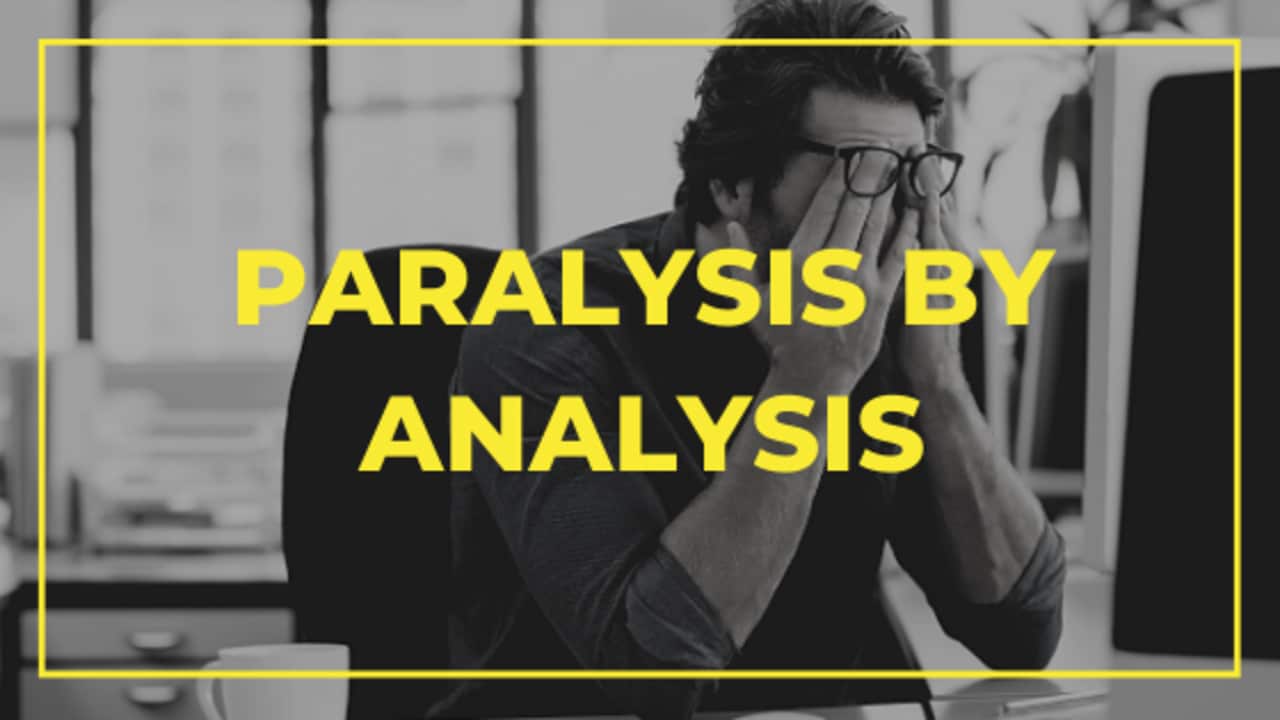Often you will manage someone who may be described as a “perfectionist”.
This is often a problem accountants suffer from due to the nature of their work.
However one needs to consider “materiality” between “perfection for a reason” and “perfection for no reason” in the context of the job you are doing.
For Example:
Spending an extra 2 hours at $180 per hour to reconcile a bank that’s out by a few dollars when total sales and total expenses are similar to last year is “perfect for no reason”
Versus
Spending 2 extra hours to reconcile the BAS which shows a different figure to the P&L is an example of “perfect for a reason”.
When one combines “perfection for no reason” with “paralysis by analysis” you will find the person is unable to get the job completed and work for piles up on their desk.
Wikipedia defines paralysis by analysis” as:
“… the state of over-analysing (or over-thinking) a situation so that a decision or action is never taken, in effect paralysing the outcome. A decision can be treated as over-complicated, with too many detailed options, so that a choice is never made, rather than try something and change if a major problem arises. A person might be seeking the optimal or “perfect” solution upfront, and fear to make any decision which could lead to erroneous results, while on the way to a better solution…”
If you are managing someone who is consistently suffering from both, you need to:
1. scope the job with a lot more detail and then,
2. monitor the person more often with regular “how’s it going?” and;
3. ensure they are very clear about the expected outcome on a regular basis throughout the job.
However if the person has low “duplication” (low productivity) and after trying to help them, you have to decide whether they are “incompetent” (suffering from both “perfect for no reason” and “paralysis from analysis”) or simply they are “inexperienced”.
If they are competent but inexperienced than it’s worth investing training time into this person.
However if its incompetence and not inexperience then it’s not worth investing any more time, as unfortunately not much is going to improve.
You then have to remember the following:
1. A seat left empty is better than a seat occupied by an incompetent person
2. You should hire slow but fire fast.
You are not doing yourself OR the person any favors in keeping that person in a seat that cannot fulfill the duties of competently.
P.S. Whenever you’re ready… here are 4 ways we can help you grow your Accounting or Bookkeeping business:
1. Grab a free copy of our book – Accountants 20-Hour Workweek
It’s the blueprint to structure, staff, and scale your firm whilst dramatically reducing your work hours. — Click Here
2. Join the Wize WaterCooler and connect with other Accountants who are scaling too
It’s our new Facebook community where business-minded Accountants and Bookkeepers learn to build a firm that runs without them. — Click Here
3. Join our new WizePulse Implementation Program
We’re putting together a new mentoring case study group this month. If you’d like to get the plan, tools, and advice from the Wize Mentors to scale your firm… just send us a message with the word “Pulse” – Click Here
4. Work with the Wize Guys privately
If you’d like to work directly with the Wize Mentor team to take you from stuck to scale…just send us a message with the word “Growth”… tell us a little about your firm and what you’d like help with, and we’ll get you all the details! – Click Here
